Welcome to Quick Lit, where this month I’m doing things a little differently: instead of spreading out my reviews across a few weeks, I am sharing book reviews today AND Thursday—all in an effort to wrap up my 2020 book reviews in time for next week’s post on my favorite books of the year (always one of my favorite and most popular posts)!
Today’s batch of reviews contains six nonfiction titles that I read in the past month—all quite different, but every one enlightening in their own way. Let’s dig into the reviews!
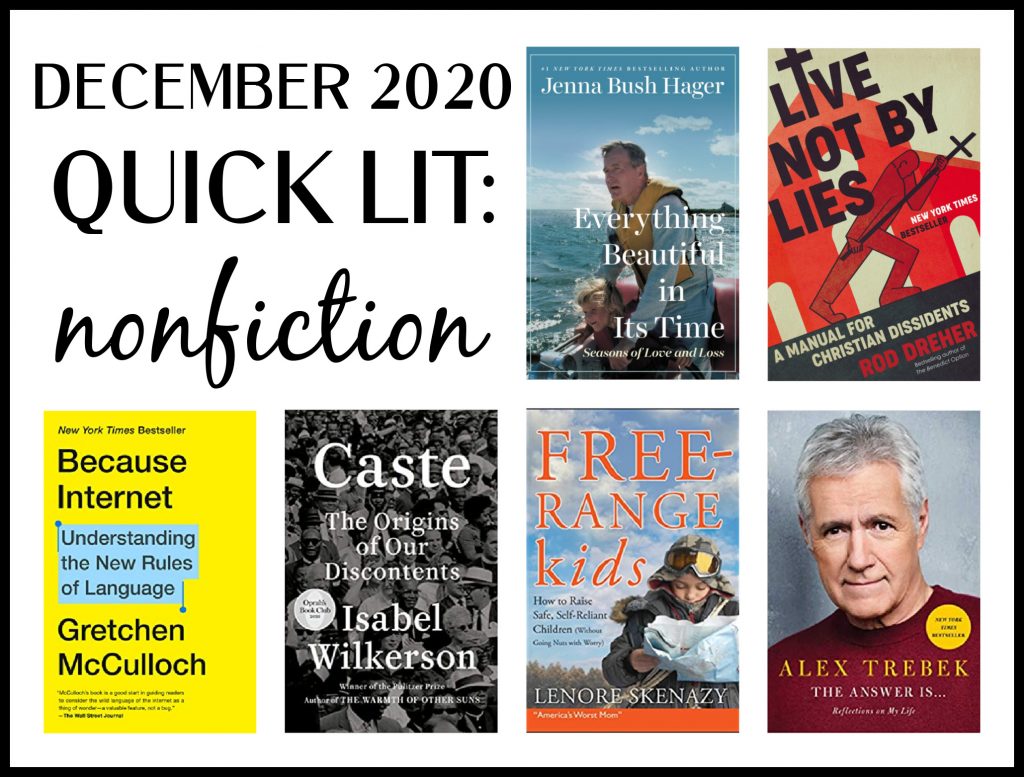
Live Not By Lies: A Manual for Christian Dissidents, by Rod Dreher: Our nation is torn when it comes to our political views, but I think we can all agree that—like it or not, and needed or not—the cultural climate is changing rapidly in America, and many Americans are fearful that we might be facing an end to the many freedoms we have long enjoyed. In Live Not By Lies, journalist Rod Dreher gives voice to a fear shared by many American Christians: that the rise of cancel culture and a societal tendency to marginalize conservative Christian values is paving the way for totalitarianism similar to that experienced by Christians under the Soviet regime. Dreher explains how progressivism has become a form of religion in the United States, and he demonstrates how progressives are utilizing the tools of social justice and internet surveillance to ruthlessly eliminate freedoms of religion and speech, resulting in totalitarianism. (Totalitarianism is defined here as a society “in which an ideology seeks to displace all prior traditions and institutions, with the goal of bringing all aspects of society under control of that ideology. A totalitarian state is one that aspires to nothing less than defining and controlling reality. Truth is whatever the rulers decide it is.”)
After illuminating this problem, Dreher makes a case for why Christians should resist this “soft totalitarianism” through a relentless pursuit of truth. Dreher’s resistance model is inspired by brave Soviet Christians who effectively stood up to totalitarian regimes and whose experiences can inform both the why and the how of our own dissidence. Finally, Dreher foreshadows the type of suffering and persecution American Christians may soon be facing and offers his take on the blessing and purpose of such suffering.
Though terrifying, this is an important book—not just for Christians, but for all free-thinking Americans. The book does have its flaws: I found the tone overly alarming, instilling more fear than hope and trust in the Lord. I also don’t agree with all of Dreher’s conclusions, particularly his tendency to conflate democracy with Christianity, as well as many presumptions related to the correlation between capitalism and the pursuit of genuine Christian faith. However, the premise of his book is valid and I appreciated Dreher’s clear-eyed perspective on our culture’s very dangerous tendencies to disregard truth and to freely relinquish our freedoms for the sake of comfort. The final section on the blessing of suffering was particularly helpful.
I came away from this one with many takeaways: 1) a renewed desire to remain grounded in God’s truth and to think critically about the messages I am receiving from media and culture in general; 2) a recognition of the importance of studying and learning from the past; and 3) a better understanding of how small compromises can have massive implications. Dreher’s message is more informational than practical, but he helped me see where I have bought into cultural lies, and what I need to do to combat them. I hope I can do so in a way that resists ideology but never individuals, manifesting God’s truth AS WELL AS his love.
I learned of this book by way of this podcast episode, which I would highly recommend if you would rather not commit to reading the full book.
My Rating: 4 Stars.
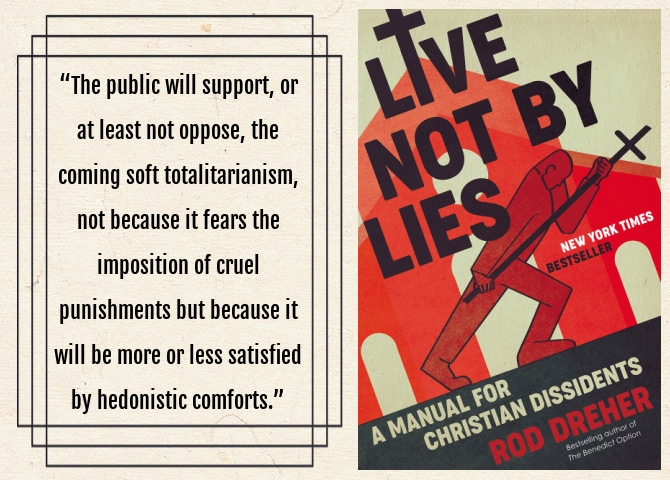
Everything Beautiful In Its Time: Seasons of Love and Loss, by Jenna Bush Hager: In this touching collection of essays, Jenna Bush Hager pays tribute to her grandparents—people known as figureheads by the rest of the world but who, to Jenna, were simply Gampy and Ganny, Pa and Grammee. These individuals played a prominent role in Jenna’s childhood, teaching her lessons of love, identity, faith, and kindness. They shaped her into a strong, confident, compassionate woman and mother of three, and through intimate stories and heartwarming reflections, Jenna shares her memories and takeaways with the rest of us.
I’m already a fan of the Bush family, and this book made me love them even more. Jenna’s heartfelt memories take us beyond the headlines and the images portrayed in media, depicting her grandparents’ and parents’ humanity and humor and revealing them to be even better behind closed doors (not many families can say THAT!). Jenna doesn’t sugarcoat life in the limelight, nor does she shy away from her family members’ flaws, but the stories are neither scandalous nor overly sentimental. Her reflections radiate love, respect, and admiration for her family, and I enjoyed getting a glimpse into what life with these figureheads is really like. As a twin mom, I found Jenna’s obvious bond with her sister Barbra particularly touching, but I gleaned inspiration from every one of the relationships Jenna describes. As the title indicates, this is a story of love AND loss, and parts are quite sad, but I appreciated Jenna’s ability to glean hope and beauty from the sadness of her grandparents’ passing.
I liked this book even more than Sisters First: it reads more like a written family scrapbook than a tell-all, and the emphasis on family and legacy truly gave me all the feels. The audiobook, read by Jenna herself, is wonderful.
My Rating: 4 Stars.
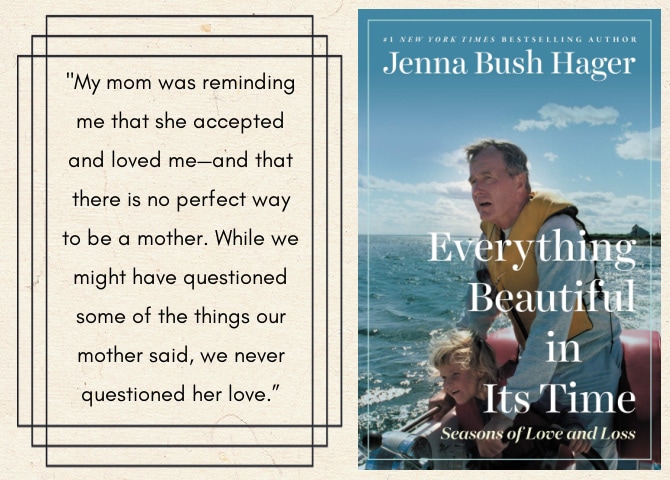
Because Internet: Understanding the New Rules of Engagement, by Gretchen McCulloch: Language has always evolved with time, but thanks to the internet, it is now changing more rapidly than ever. From acronyms and hashtags to emojis and new rules for grammar and etiquette, the internet has its own linguistic rules that are transforming language both off and online. In this fascinating book, linguist Gretchen McCulloch explores the history of language and its role in society, examining the way that language has changed across generations, particularly since the introduction of the internet. McCulloch touches on various aspects of internet language, such as tone, memes, context, and the areas where internet speak has improved upon our abilities to communicate and where it is limited.
McCulloch impressed me with her intimate knowledge of internet culture and her ability to condense challenging societal and linguistic concepts into a tutorial that is engaging and informative. I appreciated the refreshingly celebratory tone that had me feeling unusually optimistic about the internet’s impact on the next generation of communicators. This is a must-read for those interested in language or cultural trends, and for everyone who has ever wondered whether or not to capitalize your words in that text message. I listened to he audiobook while also following along on Kindle, which I would definitely recommend, as reading in both formats helped me appreciate and comprehend both the audio and visual linguistics discussed in the book.
My Rating: 4 Stars.
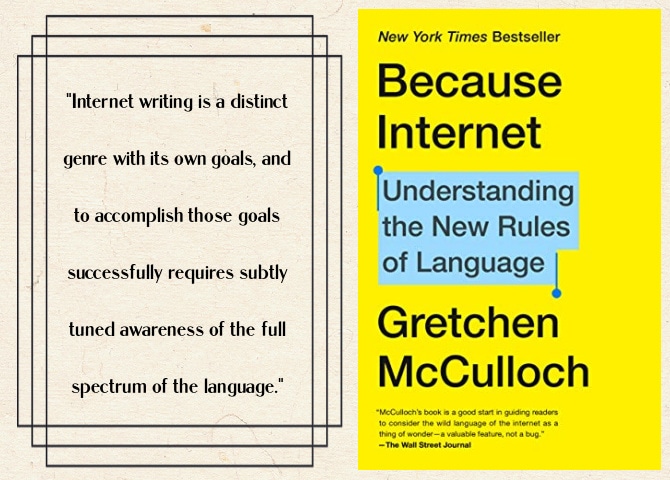
Free-Range Kids: How to Raise Safe, SElf-Reliant children (Without Going Mad with Worry), by Lenore Skenazy: I’ll admit that I’m an over-involved and often overprotective parent . . . probably more than I even realize, because helicopter parenting is so prevalent and even expected in our society. After hearing Lenore Skenazy on Armchair Expert a few months ago, I became more aware than ever of my overbearing tendencies and the inadvertent damage I could be causing in my efforts to protect my children. I was eager to learn more from Skenazy’s book.
Skenazy received national attention in 2008 when she wrote an article about why she allowed her then-9-year-old to ride the New York subway alone. The media deemed her “America’s Worst Mom”; in response, Skenazy founded a movement of Free-Range Kids which aims to fight “the belief that our children are in constant danger from creeps, kidnapping, germs, grades, flashers, frustration, failure, baby snatchers, bugs, bullies, men, sleepovers and/or the perils of a non-organic grape.” Skenazy argues that our attempts to protect our children from the world hinders their independence and is resulting in a generation of children who are fearful, emotionally insecure, and poorly prepared for life in the real world.
In Free-Range Kids, Skenazy utilizes humor, personal stories, and statistics to highlight some of the areas where our cultural standards of parenting have gotten off track. She encourages parents to lighten up, avoid extremes proposed by the experts, stop listening to fear-mongering media, and RELAX. She highlights the benefits of giving our children more freedom and letting them fail, something which will be countercultural and uncomfortable, but ultimately will be in their best interest (and in the interest of parents’ peace and sanity). The book ends with a helpful guide to many parental fears (from lead poisoning to school shootings), indicating what fears we need to relinquish and which might be genuine sources of concern.
I don’t agree with all of Skenazy’s parenting advice, but I can definitely get on board with the the gist of her philosophy, and I appreciated her permission to lighten up. I laughed a lot as I listened to the audio as Skenazy points out some of the insane things we parents do in our efforts to protect our children—many of which I am 100% guilty. I needed her words of wisdom and her reminders that I probably won’t mess up my kids and that there really isn’t that much to fear.
This book was written more than a decade ago, and it is due for an update. The world has changed quite a bit since 2009 and I would have appreciated a more relevant discussion of social media and the internet—how it has altered our parenting, and the new threats it presents for today’s kids.
My Rating: 4 Stars.
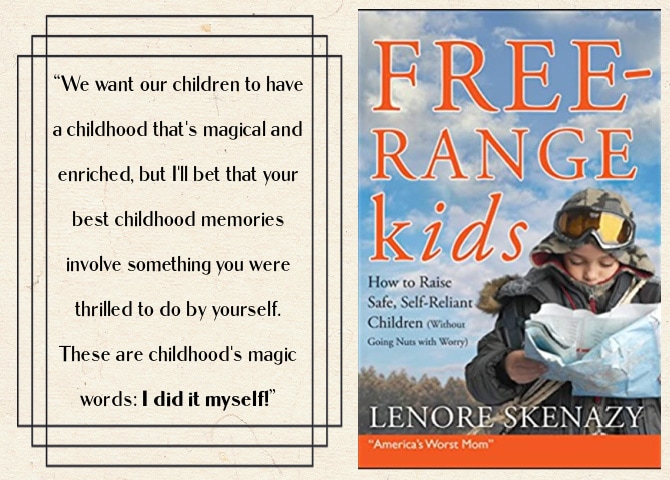
The Answer Is. . . : Reflections on My Life, by Alex Trebek: Though I haven’t watched Jeopardy! in years (we haven’t had tv since we were married twelve years ago), I would still consider myself a huge Jeopardy! fan and have always been intrigued by the show’s host. I listened to this audiobook just days before the celebrity’s passing, and am thankful for the opportunity to get to know Trebek through his own words. Alex Trebek was a notoriously private figure, but following a cancer diagnosis last year, the 80-year-old finally decided to open up about his life in this humorous and thoughtful collection of personal anecdotes.
Following a question/answer structure inspired by the popular trivia show, The Answer Is includes reflections from Trebek’s early years in Canada as a Catholic schoolboy, his foray into show business, his relationships, and some of his favorite Jeopardy! contestants and memorable moments. Deeper essays delve into his thoughts on politics, profanity, becoming an American citizen, and even the afterlife. The chapters are brief but surprisingly vulnerable, marked by Trebek’s wisdom and unique brand of self-deprecating charm. Far from the aloof persona he exhibited on camera, this memoir shows him to be kindhearted and deeply likable.
I highly recommend the audio, which is delightfully read in part by Trebek as well as by Jeopardy! contestant (and now Trebek’s good friend) Ken Jennings.
My Rating: 4 Stars.
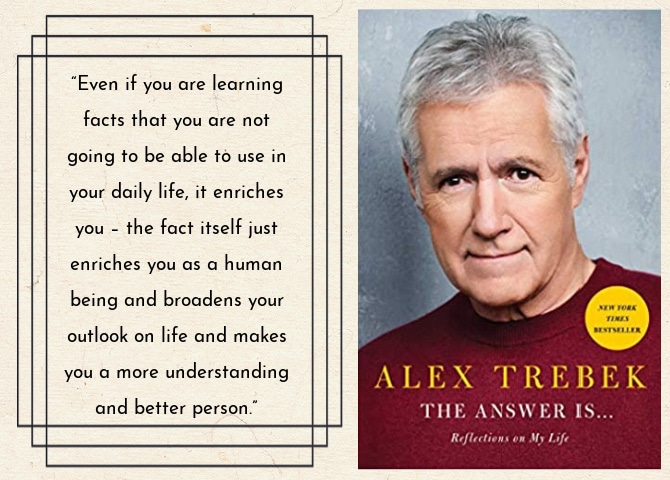
Caste: The Origins of Our Discontents, by Isabel Wilkerson: In this timely exploration of the unspoken racial hierarchy that has shaped America, Isabel Wilkerson describes a powerful caste system analogous to those seen in India and Nazi Germany. Following an overview of the history of human division, Wilkerson presents the eight pillars of caste—among them heritability, polluted bloodlines, dehumanization, and terror as means of control—and provides anecdotes and studies to illustrate the destruction this caste system has had on humanity in general, and in America specifically.
This book is beautifully written, giving a face and emotion to some of history’s greatest atrocities and shedding light on horrific injustices. I found it helpful to view racism through this unique framework, as it helped me to understand identity and injustice in a new way, and I appreciated the global context and insights into castes found within other cultures. However, I had difficulty embracing the book’s general premise, and I foundWilkerson’s conclusions simplistic and insufficient for explaining—let alone healing—the indisputable racial tensions in our country. I particularly struggled with her presumption that racism is to blame for the political unrest our country has experienced in the past couple of decades. The book would have held much more credibility if Wilkerson were not so quick to attribute willful ignorance and malicious intent to wide swaths of American voters, or if she hadn’t coopted the biased political rhetoric of modern media.
I know my opinion is a minority, as many people have lauded this book for its original reframing of a problem that demands a solution. Unfortunately I fear that the one-dimensional perspective presented in Caste only serves to stoke the fires of racial tension, exacerbating a problem that cannot be solved through name calling, shaming, or inaccurate metaphors. Caste was a helpful step in my continued goal of understanding the complex issue of race, but it is far from a comprehensive examination of this topic, and not one I feel comfortable endorsing as the definitive explanation it purports to be.
My Rating: 3.5 Stars. (Rounded down to 3 stars on Goodreads.)
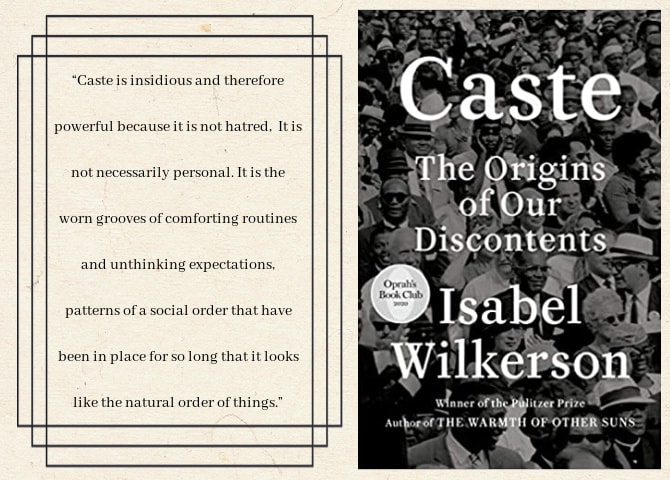
Have you read any of these books? I would love to hear your opinions! And I’ll be back on Thursday with reviews of the eight fiction titles I read in the past month.
I watch Jeopardy every night, admire Alex Trebeck, and I’m savoring his last few shows! I have his book on my TBR.
I started Caste and then ended up skipping to the end…after I got the gist I was eager to read the conclusion…..it was simplistic and somewhat unsatisfactory. But I don’t know exactly what I was looking for either. Nice review!
I read Jenna’s sister book and now I’m eager to read about the grandparents!
I’m so relieved to hear I’m not alone in not loving Caste; it’s very popular right now. I think you will really enjoy both Alex Trebeck’s and Jenna’s books!
I decided not to review it.